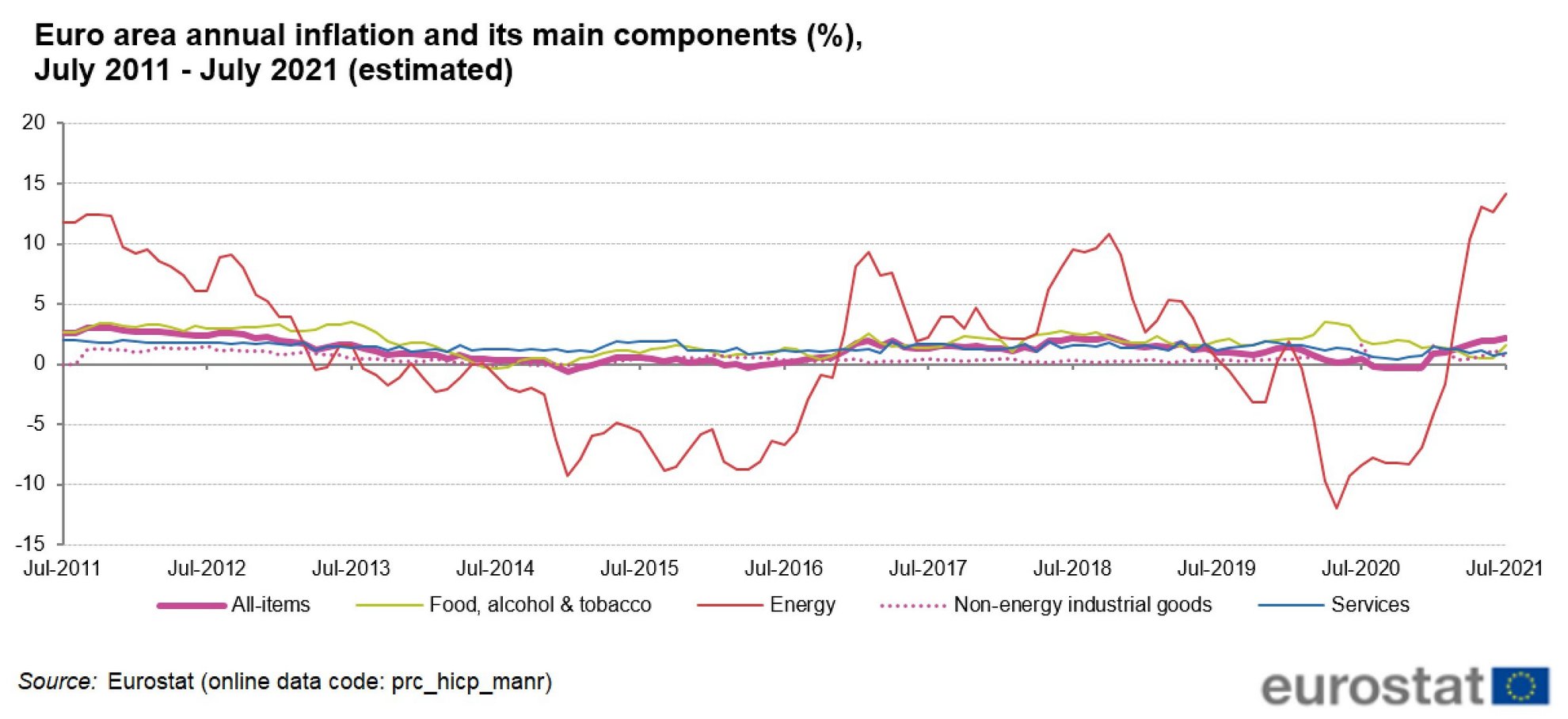Broad inflation risks are beginning to cast a shadow over the European economy, though analysts say the trend is still not serious enough to spark changes in monetary policy.
Eurostat, the statistics agency for the European Union (EU), in July raised its estimates for full-year inflation in the 19-nation euro currency zone to 2.2 per cent, up from a 1.9-per cent estimate a month earlier. That is a significant increase over such a short span of time.
The situation is particularly acute in Germany, the EU’s largest economy, where inflation reached a 13-year high in July, prompting the German trade union Verdi to demand “strong wage increases” nationally.
While rising prices are a key sign that economies are recovering from the massive slowdown sparked by the coronavirus pandemic last year, too much inflation is a problem because it erodes the value of savings and wages and increases the cost of borrowing money — all factors that can lead to more inflation.
According to Nicola Borri, a macro-finance economist from LUISS University in Rome, the latest trends are “slightly worrying,” though he noted periods of crisis are often followed by a temporary spike in inflation.
“The coronavirus pandemic manipulated markets in many ways,” Borri told Xinhua. “One of them was to create supply shortages, which means that when demand started to recover prices rose. That is a hard thing to control at the start of an economic recovery.”
Lorenzo Codogno, founder and chief economist of LC Macro Advisors and a visiting professor at the London School of Economics and Political Science, told Xinhua that of the three basic stages that cause inflation, the latest European trends are still mostly in the least-risky stage.
Codogno said those stages are: transitory inflation caused by a weak base period; inflation sparked by major investments, especially by governments; and inflation triggered by wage pressure. Though there is evidence of all three stages at the moment, the biggest factors are from the first stage.
“There is no doubt that the inflation problem looks worse on paper than it is, due to the fact that a year ago European economies were under lockdown,” Codogno said. “I can understand that the European Central Bank wants to monitor the situation, but they are correct to take a relaxed attitude toward it at the moment.”
Codogno said the first “warning sign” that the European inflation trends might be more problematic than they appear would be if the high inflation rates continue into 2022 when the transitory impacts of the comparison period fade. In that case, he said, “it would be time to reassess the situation.”
Borri agreed, saying the risk of inflation-related worries among consumers, investors and companies at this moment is probably greater than the risks associated with inflation itself.
“The European Central Bank needs to keep the worries under control by stating that they are looking ahead a year and that everything seems to be fine and that they’ll continue to watch and make sure everything remains under control,” Borri said.







Click here to change your cookie preferences